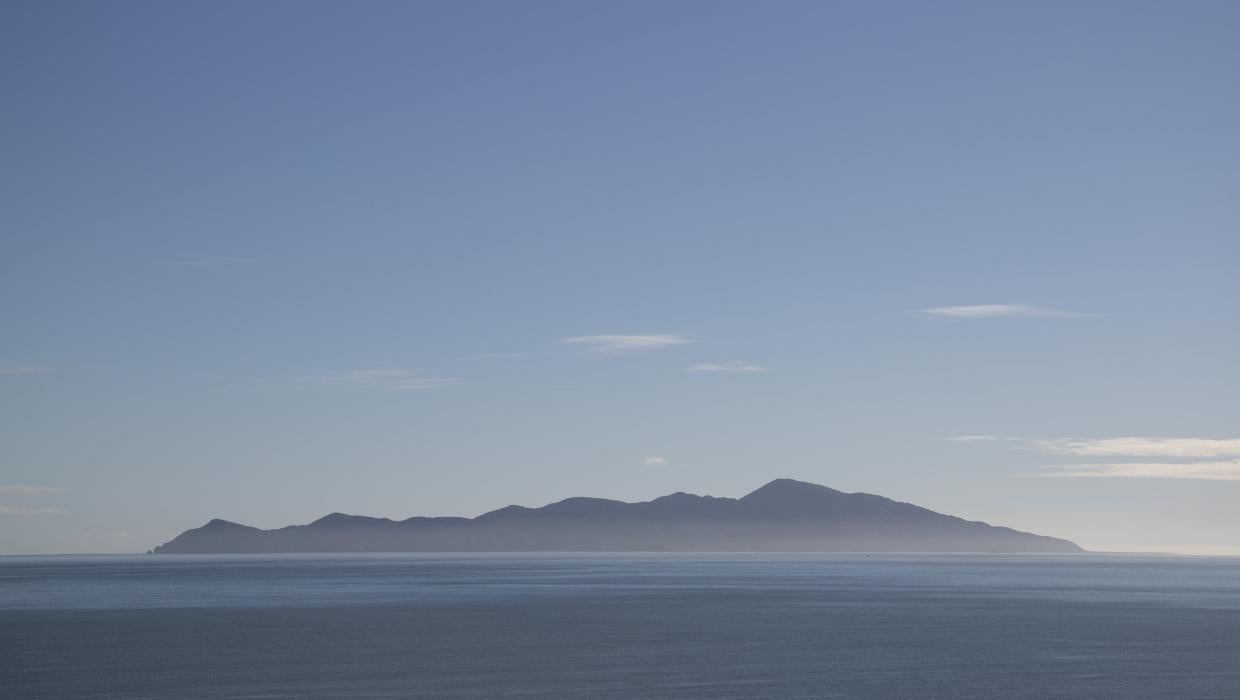Politics
Fonterra’s Sale to Lactalis Raises Ethical Questions Over Kāpiti Brand

Fonterra’s impending sale of its Kāpiti brand to the French dairy giant Lactalis has sparked significant debate regarding the ethical and environmental responsibilities tied to the brand. Former mayor of Kāpiti, K “Guru” Gurunathan, argues that the sale is akin to “selling the family silver,” emphasizing that the Kāpiti name carries with it a moral obligation towards the local community and environment.
The Kāpiti brand, known for its cheeses and ice creams, originated from the Kāpiti Coast and has become synonymous with regional pride. The brand features the stylized image of Kāpiti Island, a site of natural beauty and ecological significance. As Fonterra moves forward with the sale, questions arise about the future of the brand’s commitments to the local environment and community.
Fonterra previously acknowledged its responsibilities associated with the Kāpiti brand. In July 2021, the company established a five-year partnership with the Department of Conservation (DOC) aimed at restoring biodiversity on Kāpiti Island, particularly focusing on the endangered kōkako bird. This partnership included annual funding of up to $50,000 for predator control and habitat protection. While modest, this commitment symbolized the recognition that profit derived from the image of a natural asset comes with a duty to help preserve it.
Local stakeholders are now expressing concerns about the future of this partnership in light of the sale. The uncertainty surrounding whether Lactalis will maintain or expand upon Fonterra’s previous commitments raises critical questions. Neither Fonterra nor DOC has provided clarification on whether the obligations tied to the Kāpiti brand will transfer to the new owners. This ambiguity is significant as the name “Kāpiti” embodies a real place with a rich ecological and cultural narrative.
Gurunathan highlights a broader issue regarding corporate responsibility. As biodiversity erosion and climate challenges escalate, the ethics of place become increasingly important. Companies that utilize local names enter into a relationship that demands reciprocity, encapsulated in the Māori principles of maanakitanga (respect) and kaitiakitanga (guardianship). A company cannot claim the cultural significance of a location without shouldering some of its responsibilities.
The sale has garnered political attention, with Winston Peters, New Zealand’s Foreign Minister and leader of NZ First, expressing concerns that transferring ownership of iconic food brands to foreign entities risks eroding the identity that gives these brands their value. His remarks underscore a belief that the integrity of the Kāpiti name must remain connected to the land and community that shaped it.
Ownership without responsibility, Gurunathan argues, amounts to exploitation, while ownership accompanied by stewardship represents a partnership. Lactalis now has the opportunity to affirm its commitment publicly, potentially continuing Fonterra’s funding of DOC’s biodiversity programs while collaborating with local iwi and the community to establish a lasting conservation endowment. Such actions would not only demonstrate corporate responsibility but also cultural awareness, recognizing that brands rooted in New Zealand’s identity must contribute to its wellbeing.
While the prospect of foreign investment is welcome, it is crucial that companies respect local communities and their heritage. As Fonterra transitions the Kāpiti brand to Lactalis, the essence of the brand must not be reduced to a mere marketing label devoid of authenticity. The moral accountability linked to the brand’s identity remains with those who profit from it—both now and in the future.
The Kāpiti name belongs to the land, its natural treasures, and the people who have coexisted with them for generations. As consumers, the next time we enjoy a tub of Kāpiti ice cream or a wedge of cheese, we must remember its origins and the values it represents. The song of the kōkako on Kāpiti Island serves as a poignant reminder to keep profits ethical and foster a reciprocal relationship with nature.
-

 World3 months ago
World3 months agoTest Your Knowledge: Take the Herald’s Afternoon Quiz Today
-

 Sports3 months ago
Sports3 months agoPM Faces Backlash from Fans During Netball Trophy Ceremony
-

 Lifestyle3 months ago
Lifestyle3 months agoDunedin Designers Win Top Award at Hokonui Fashion Event
-

 Sports3 months ago
Sports3 months agoLiam Lawson Launches New Era for Racing Bulls with Strong Start
-

 Lifestyle3 months ago
Lifestyle3 months agoDisney Fan Reveals Dress Code Tips for Park Visitors
-

 Health3 months ago
Health3 months agoWalking Faster Offers Major Health Benefits for Older Adults
-

 World3 months ago
World3 months agoCoalition Forms to Preserve Māori Wards in Hawke’s Bay
-

 Politics3 months ago
Politics3 months agoScots Rally with Humor and Music to Protest Trump’s Visit
-

 Top Stories3 months ago
Top Stories3 months agoUK and India Finalize Trade Deal to Boost Economic Ties
-

 Entertainment3 months ago
Entertainment3 months agoExperience the Excitement of ‘Chief of War’ in Oʻahu
-

 World3 months ago
World3 months agoHuntly Begins Water Pipe Flushing to Resolve Brown Water Issue
-

 Science3 months ago
Science3 months agoNew Interactive Map Reveals Wairarapa Valley’s Geological Secrets









